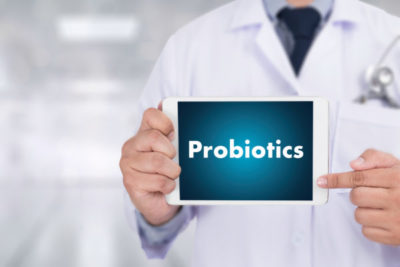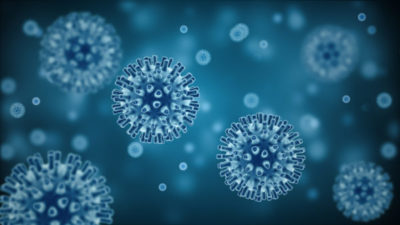Probiotics have saturated both television and print advertising today. The commercials have pumped up many patients’ awareness of the functions of the digestive system. At Digestive Disease Consultants, here in Orlando, we have seen the enormous popularity of these supplements. Thus, we think it’s time to bring our readers the truth behind the probiotic trend.
Now, please understand, we believe that probiotics can be a good treatment if properly understood. You should consult your doctor before you begin a course of treatment. In spite of their high dollar ads, probiotics have not been cleared as medicine by the FDA, but only as a food supplement. Yet they can have a profound effect on your system if you are unaware of certain details pertaining to your case.

Probiotics can be part of balancing your healthy digestive system.
For that reason alone, we suggest you check with your doctor before you invest in a self-prescribed regime of designer probiotics. It could be argued that marketing has out-stripped medicine in terms of probiotic research and proven science. Thus, some ads spread a few myths and generalities. So let’s look at some of the solid science behind the stylish fad of popping probiotics like they are breath mints.
Probiotics and the Bacterial World within You
Inside your large and small intestines lives a grand galaxy of creatures.
“The normal human digestive tract contains about 400 types of probiotic bacteria. These are the ones that reduce the growth of harmful bacteria and promote a healthy digestive system.” It might surprise you to know your digestive tract is the eco-system to hundreds of thousands of bacteria.
You play host to many thriving species of good bacteria.

Probiotic Portrait of a living lactobacillus, good for the human gut.
The Mayo Clinic says, “Probiotics are good bacteria that are either the same as or very similar to the bacteria that are already in your body. Your lower digestive tract alone teems with a complex and diverse community of these bacteria. In fact, there are a greater number of bacteria in your intestines than there are cells in your body.
Probiotics and the Bacterial Balance of Good Guys vs. Bad Guys
So, now you know, probiotics are alive and bacterial. However, DDC Orlando health professionals want you to keep in mind that not all bacteria in your body are beneficial. You can harbor too many bad bacteria and not enough good ones. The imbalance between good bacteria and bad bacteria might cause a patient to suffer with:

Yummy yogurt has probiotics.
- skin conditions,
- constipation
- or equally miserable diarrhea,
- various chronic health conditions
- and weight gain.
One cause of imbalance in bacteria of the digestive system might simply be an unhealthy eating style. Poor nutrition or a steady diet of fast food might allow the bad bacteria to control the gut. Mayo Clinic states that this bacterial imbalance “can wreak all sorts of havoc on your body’s systems.”
Likewise, antibiotics can effectively kill all your good bacteria. They can also give you digestive issues.
Probiotics Do Not Have To Come In Bottles
Here’s a news flash outside the arena of advertising. A well-balanced diet can include the perfect amount of probiotics without the addition of pills or capsules. You can actually find these bacteria in some of the food you eat. Probiotics live in some cheese, sauerkraut, yogurt, kimchi, miso soup, kefir, sourdough bread and simple Lactobacillus milk.
Most people know yogurt is full of happy, good-for-you bacteria. However, Digestive Disease Consultants are not referring to the sugared, preserved, artificially flavored, nut-crusted, fruit-glazed, chocolate covered, whipped-cream-infused custard desert variety of yogurt. No.
On the one hand, healthcare professionals recommend a very specialized type of yogurt for improving the bacterial health and balance of your digestive tract. If you want to make certain your favorite brand supports probiotics, find the label that states “Live and Active Cultures” on the product label. (If they are dead and preserved, they are no good to you.)
Did you know that there are about 100 million active cultures per gram in your little container of yogurt.)
On the other hand, how many probiotic capsules should you take as dietary supplements? That depends on two big issues:
A. What type of bacteria do you need?
B. Why are you taking them as a supplement instead of eating properly in your daily diet?
What’s In Your Probiotics?
Some commercials ask, “What’s in your wallet?” Likewise, please check what type of bacteria are in your commercial probiotic capsules or tablets. Many doctors and nutritionists who endorse probiotics will suggest you begin with a combination that contains strains from the Lactobacillus family and Bifidobacterium family.
As you might surmise, these are the same strains of bacteria, the same probiotics, who typically live in your gastrointestinal galaxy. They are the ones that happily help you daily. As mentioned above, many commercial probiotics contain Lactobacillus and Bifidobacteria. We add two more commonly recommended ones for your acquaintance. They are Saccharomyces Boulardii and Bacillus Coagulans.
The Probiotics in the Bottle: Medicine vs. Marketing
At DDC Orlando, we agree with the Medical Journal of Australia as it states that “marketing might be getting ahead of the medicine” in regards to probiotics.
One of the important points of this article is that each type of bacteria works in concert with your gut. But they each work in different ways. At DDC Orlando, your digestive specialists want you to know that all probiotics are not identical. They do not all perform identical effects in your body.
Probing the Reasons For Probiotics
Your gastroenterologist might suggest you take probiotics because you are having trouble regulating diarrhea. Perhaps you have been fighting multiple infections of the digestive tract and depleted your probiotics. You might have inflammation or inflammatory bowel disease (IBD) or irritable bowel syndrome (IBS.) The benefits of probiotics as therapy for the more serious of these conditions continue to be studied. Likewise, scientists are in hot pursuit of the use of probiotics to treat colon cancer, certain skin infections and many other critical and chronic conditions. As yet there are no clear-cut guidelines.
Probiotics, Antibiotics and the Galaxy of Your Gut
As mentioned above, another reason many people take probiotics is that they have fought off a serious infection with the use of a course of strong antibiotics. Along with killing the infection, however, the antibiotics exterminated almost all of the good bacteria in the patient’s gut. So the patient takes probiotics to replace the healthy balance of life in the gut galaxy.
A Few Precautions to take with your Probiotics
At DDC Orlando, we believe scientists must devote more study to the safety issues surrounding the use of probiotics in three important groups. These include the very young, the very old, and people who have weak immune systems.” As the Mayo Clinic advises, “In general, most healthy adults can safely add foods or dietary supplements that contain probiotics to their diets.”

After a strong course of antibiotics, probiotics restore balance to your digestive system. Talk to your doctor.
The most notable side-effect of probiotics would have to be the flatulence that goes away as your system becomes accustomed to the new probiotic. However, the doctors and staff of DDC Orlando give you a little list of red-flags:
- The exact strains of bacteria that will help you the most are not necessarily the well-known ones in current supplements.
- Likewise, if you are lactose intolerant, DDC Orlando advises you to find a dairy-free probiotic.
Special Questions
We also suggest that you think about your other medications. Take any dietary supplement with caution if your answer is “yes” to any of these questions:
- Are you also taking an antibiotic or prescription drug that affects your immune system?
- Do you have a fungal infection?
- Has your doctor diagnosed you with pancreatitis?
We caution you even more strongly about taking a probiotic dietary supplement if the answer is yes to any of these questions:
- Do you often deal with infections?
- Do you have an auto-immune disease or a weakened immune system?
- Are you allergic or sensitive to the common sources of probiotics? (This includes milk.)
In the final analysis, please talk to your healthcare provider before you embark on a regime of probiotic dietary supplements. As we said in the title, step out of the commercially trendy advertising box. Thank you for reading this introductory blog to our November topic on the amazing bacterial inhabitants of the gastroenterological galaxy within us all. In Part Two of this topic, next week we will go deeper into the DDC Orlando investigation of probiotics. We will bring you some insight about where the promising research might lead in the future.
